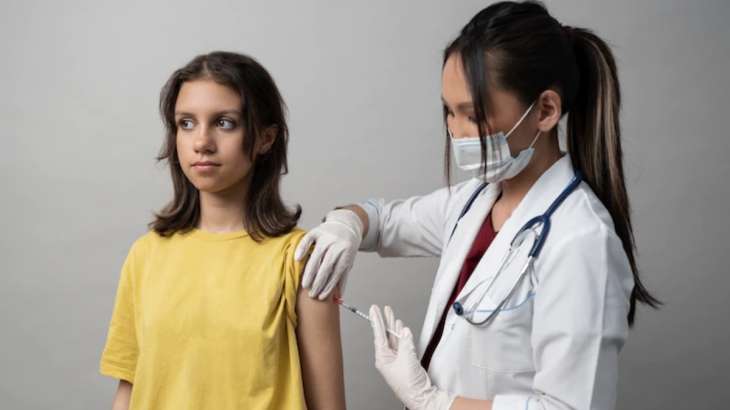
Cervical cancer can be treated with the HPV vaccine and India is soon to take steps in this area. Dr. NK Arora, head of the National Technical Advisory Group on Immunization (NTAGI), said that cervical cancer can be treated with the HPV vaccine. He informed that India will soon be able to provide HPV vaccine for girls aged 9-14 under a national program.
HPV vaccination is recommended for ages 11–12 years. HPV vaccines can be given starting at age 9 years. All preteens need HPV vaccination, so they are protected from HPV infections that can cause cancer later in life. Teens and young adults through age 26 years who didn’t start or finish the HPV vaccine series also need HPV vaccination.
Vaccination is not recommended for everyone older than age 26 years. Adults aged 27 to 45 years, who are not already vaccinated may decide to get HPV vaccine after speaking with their doctor about their risk for new HPV infections and the possible benefits of vaccination for them. The first dose is routinely recommended at ages 11–12 years old. The vaccination can be started at the age of 9 years. Only two doses are needed if the first dose was given before the 15th birthday. Teens and young adults who start the series later, at ages 15 through 26 years, need three doses of HPV vaccine.
What is Cervical Cancer?
Cervical cancer is a type of cancer that starts in the cervix. The cervix is a hollow cylinder that connects the lower part of a woman’s uterus to her vagina. Most cervical cancers begin in cells on the surface of the cervix.
Symptoms of Cervical Cancer
- Unusual bleeding, like in between periods, after sex, or after menopause
- Vaginal discharge that looks or smells different than usual
- Pain in the pelvis
- Needing to urinate more often
- Pain during urination
Who are at higher risk?
- Numerous sexual partners
- Sexual activities at a younger age
- Pre-existence of UTIs
- Smoking
Disclaimer: Tips and suggestions mentioned in the article are for general information purpose only and should not be taken as professional medical advice. Please consult a doctor before starting any fitness regime or medical advice.
Also Read: Can one-year-old babies eat chocolates, potatoes & eggs? Here’s what mothers can feed their infants
Also Read: Diabetes: Foods and herbs that help control blood sugar level





